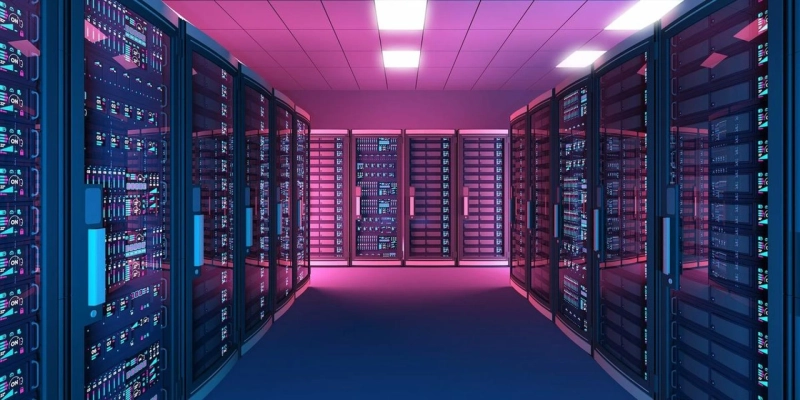Have you ever found yourself juggling files across multiple devices, struggling to find that one important document you saved on your laptop, not your desktop? Or maybe you're worried about losing precious family photos if a single hard drive fails. If these scenarios sound familiar, it's time you learned about Network Attached Storage, or NAS.
A NAS device can revolutionize how you store, share, and access your data. It acts as a central digital library for your home or office, making your files securely available from any device on your network. This article will explain what is NAS, how it works, and why it might be the perfect solution for your data storage needs. We'll cover the key benefits, from centralized storage and easy file sharing to robust data protection, helping you decide if a NAS appliance is right for you.
What is a NAS Appliance?
A Network Attached Storage (NAS) appliance is essentially a smart storage device connected to your home or office network. Think of it as your own private cloud, but one that sits physically within your own space. It consists of one or more hard drives housed in a single unit, which is plugged directly into your network's router.
Unlike a standard external hard drive that connects to a single computer via a USB cable, a NAS is accessible to any device on the network. This includes computers, laptops, smartphones, and smart TVs. Once connected, authorized users can store files on the NAS and access them from anywhere with an internet connection, all without needing to plug directly into the device itself.
How Does NAS Differ from Other Storage?
It's easy to confuse NAS with other storage solutions. Let's clarify the key differences.
- NAS vs. External Hard Drive: An external hard drive is a form of Direct Attached Storage (DAS). It must be physically connected to a computer to be used. A NAS connects to the network, allowing multiple users and devices to access it simultaneously without a direct physical connection to any one computer.
- NAS vs. The Cloud: Public cloud services like Google Drive or Dropbox store your data on servers owned and managed by a third-party company. A NAS gives you complete physical control over your data storage hardware. This means no monthly subscription fees and greater privacy, as your files are stored on your own equipment.
- NAS vs. a Server: While a file server can perform similar functions, a NAS appliance is a specialized device designed specifically for storage. It comes with a user-friendly operating system that simplifies setup and management, making it much more accessible for users without extensive IT knowledge.
Why Do You Need a NAS?
Now that we've covered the "what," let's explore the "why." A NAS appliance offers several compelling benefits that make it an invaluable tool for both home and business users.
Centralized Data Storage
One of the biggest advantages of a NAS is its ability to consolidate all your files in one place. Instead of having photos, documents, and media scattered across various devices, you can store everything on the NAS. This creates a single, organized library that is easy to manage and search. Everyone in your household or team can access the same central repository, eliminating the confusion of multiple file versions.
Seamless File Sharing and Collaboration
A NAS makes sharing files effortless. You can grant access to specific folders for family members, friends, or colleagues, allowing for simple collaboration. Instead of emailing large files back and forth, you can just send a secure link to the file on your NAS. This is particularly useful for teams working on shared projects or families wanting to share photos and videos with relatives.
Robust Data Protection
What happens if your computer's hard drive fails? For many, it means losing irreplaceable data. A NAS appliance offers superior data protection through a system called RAID (Redundant Array of Independent Disks). Most NAS devices have two or more hard drive bays. With a RAID configuration, the system can automatically mirror your data across multiple drives. If one drive fails, your data remains safe on the other(s), and you can simply replace the faulty drive without any data loss.
Remote Access from Anywhere
Your private cloud means your files are always within reach. Modern NAS devices allow you to securely access your data from anywhere in the world with an internet connection. Whether you're traveling for work or on vacation, you can log in to your NAS appliance through a web browser or mobile app to retrieve documents, stream your music library, or view photos.
Automated Backups
A NAS simplifies the backup process for all your devices. You can configure it to automatically back up your computers (both Windows and Mac) on a regular schedule. This "set it and forget it" approach ensures that you always have a recent copy of your important files, protecting you from hardware failure, accidental deletion, or ransomware attacks.
Get Started with Network Storage
A NAS appliance is a powerful, versatile, and secure solution for managing your digital life. It centralizes your data, simplifies sharing and collaboration, provides robust protection against data loss, and gives you the freedom of remote access. By moving beyond simple external hard drives and public cloud services, you gain full control over your data with your very own private cloud.
If you're tired of managing files across multiple devices or worrying about the safety of your digital memories, investing in a NAS is a smart next step.



